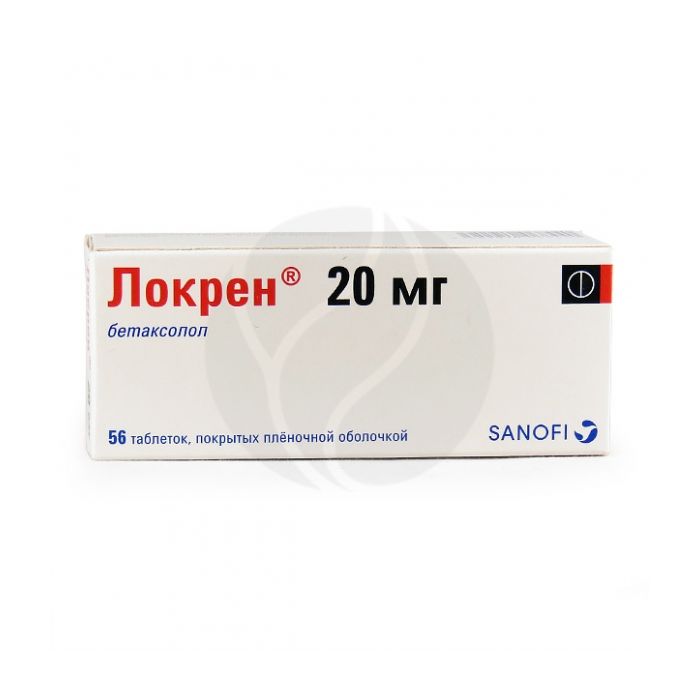Lokren tablets 20mg, no. 56
Expiration Date: 11/2025
Russian Pharmacy name:
Локрен таблетки 20мг, №56
arterial hypertension;
prevention of exertional angina attacks.
Inside, without chewing, drinking plenty of liquid.
The initial dose is 1 table. (20 mg) per day.
Dosage in patients with renal impairment
The dose of the drug should be set in accordance with the patient's renal function: dose changes are not required when Cl creatinine> 20 ml / min. However, at the beginning of treatment, it is recommended to conduct clinical observation until the equilibrium levels of the drug in the blood are reached (on average, 4 days).
In patients with severe renal failure (Cl creatinine <20 ml / min), the recommended initial dose is 5 mg / day (in patients on hemodialysis - regardless of the frequency and time of hemodialysis sessions).
Dosage in patients with hepatic impairment
In patients with hepatic impairment, dose adjustment is usually not required. However, at the beginning of therapy, more careful clinical observation of the patient is recommended.
| Film-coated tablets, divisible | 1 tab. |
| betaxolol hydrochloride | 20 mg |
| excipients: lactose monohydrate - 100 mg; sodium amylopectin glycolate - 4 mg; MCC - 113 mg; anhydrous colloidal silicon dioxide - 1.6 mg; magnesium stearate - 1.4 mg; hypromellose - 3.90 mg; macrogol 400 - 0.43 mg; titanium dioxide (E171) - 0.67 mg |
in a blister 14 pcs.; 2 blisters in a box.
hypersensitivity to betaxolol;
severe chronic heart failure IIB Ц III degree;
cardiogenic shock;
AV block II and III degree (without connecting an artificial pacemaker);
Prinzmetal's angina;
sick sinus syndrome (including sinus blockade);
severe bradycardia;
arterial hypotension;
combination therapy with sultopride and floktaphenin;
simultaneous administration of MAO inhibitors;
cardiomegaly (no signs of heart failure);
age up to 18 years (efficacy and safety have not been established).
Due to the presence of lactose, the drug is contraindicated:
with congenital galactosemia;
syndrome of glucose / galactose malabsorption or lactase deficiency.
Carefully:
history of allergic reactions;
pheochromocytoma;
metabolic acidosis;
obliterating diseases of peripheral vessels ('intermittent' claudication, Raynaud's syndrome);
liver failure;
chronic renal failure;
hemodialysis;
myasthenia gravis;
depression (including a history);
elderly age;
AV blockade of the 1st degree;
chronic obstructive pulmonary disease (bronchial asthma, pulmonary emphysema);
psoriasis;
chronic circulatory failure;
thyrotoxicosis;
diabetes.

